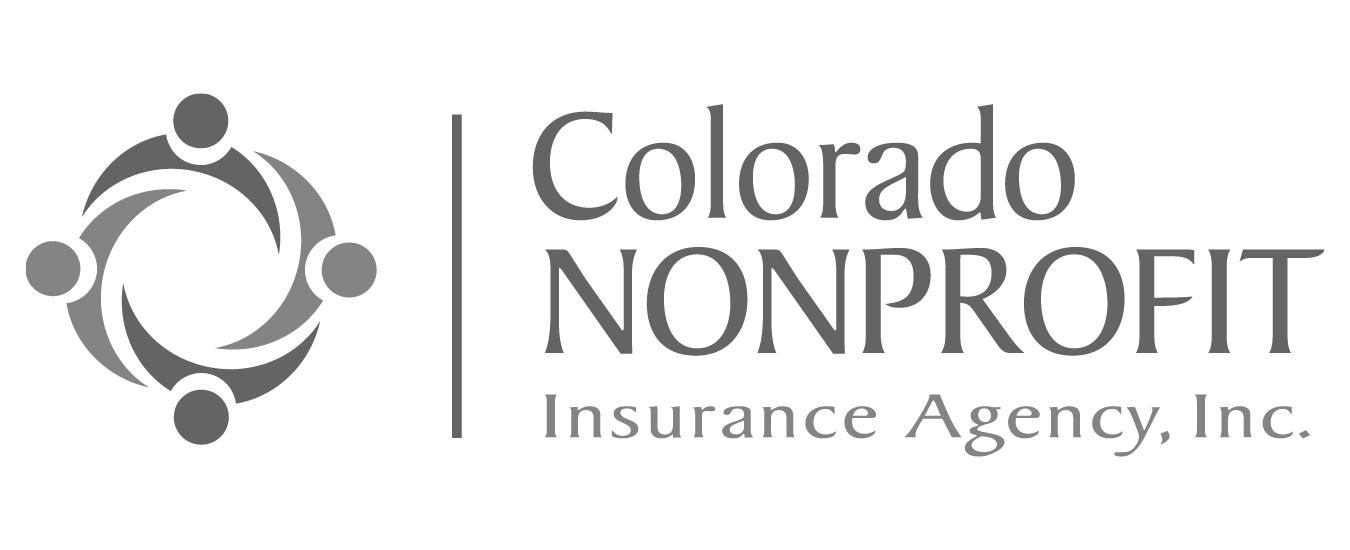
Josh joined UST in the Spring as an Enrollment Specialist with our sales team and was intrigued by the idea of how our efforts could so greatly impact the nonprofit communities we serve through our day to day business. Josh himself, has done his fair share of working with the nonprofit community by mentoring youth, cleaning beaches, helping out at animal rescues and working in food shelters and that’s just to name a few.
Josh is a native to the area and enjoys getting lost in the surrounding hills which happens to be his favorite place to be. He explains, “I like the feeling of not being entirely sure of where I am or where I’m going when on a hike, and then feeling excited to find out.” In addition to working full-time, he’s working on completing his Master of Business Administration, occasionally teaches indoor cycling, enjoys yoga, Pilates and abstract expressionist painting. With a firm belief in personal development, he would also like to earn a PhD in Business Administration or Art history.
Having studied art history and philosophy in college, Josh hopes to one day travel to some of the places he studied, such as the Alhambra in Spain, Dome of the Rock in Jerusalem, Great Mosque of Mecca and Bodh Gaya in India. Not your average travel destinations but certainly amazing places to visit.
In addition to the many activities he enjoys in his spare time, he also enjoys spending time with the love of his life, Zima, his 3-year old Siberian husky. Like so many of his fellow co-workers, Josh always has a good story to share about his beloved pet which makes him a perfect addition to the UST team.
Help us in welcoming Josh to the team via Twitter @USTTrust or Facebook @ChooseUST with the hastag #MeetUSTMondays!
Employers added 156,000 jobs in August and the economy requires 150,000 new jobs each month in order to continue expanding. Considering the economy is growing at a healthy rate, tax cuts and increased spending in 2017 may cause for inflation.
In August, both the unemployment rate, at 4.4 percent, and the number of unemployed persons, at 7.1 million, were little changed from July. After a decline at the start of the year, the unemployment rate has remained at a consistent range from 4.3 or 4.4 percent since April. The labor-force participation rate- People who had a job or were looking for one—remained unchanged at 62.9 percent.
The U.S. economy added 36,000 jobs in manufacturing while construction increased by 28,000 and health care rose by 20,000. Employment in the professional and technical services industry has shown a gradual increase over the course of the year with 22,000 positions filled for the month of August. Mining industry has gained 7,000—employment in mining has risen by 10 percent since October 2016. Employment in other major industries, such as wholesale trade, retail trade, transportation and warehousing, information, financial activities, and government, showed little to no change over the course of the month.
In August, average hourly earnings rose by 3 cents, after rising by 9 cents in July. Over the past 12 months, average hourly earnings have increased by 2.5 percent. In addition, the average hourly earnings of the private-sector productions and non-supervisory employees increased by 4 cents.
Keep in mind, Hurricane Harvey had no direct effect on the employment and unemployment data for the month of August. Household surveys data collection was completed before the storm. Establishment survey data collection for this new release was mostly completed prior to the storm, and collection rates were within normal ranges nationally and for the affected areas.

A UST partner since 1983, the CT Community Nonprofit Alliance is the largest advocacy organization for nonprofits in Connecticut, representing hundreds of nonprofit organizations across all categories—ranging from Health and Human Service programs to Arts and Culture. After the Connecticut Association of Nonprofits and Connecticut Community Providers Association joined forces in early 2016, the 600+ nonprofits represented by the new Alliance serve more than half a million individuals every day in areas of mental health, substance use disorders, intellectual disabilities and child and family health and well-being.
“The Alliance is the voice of nonprofits in Connecticut. Our mission is to advocate excellence in community-based nonprofits through advocacy and capacity building,” said Josh Lipshitz, Director of Membership and Business Development at CT Community Nonprofit Alliance. “One example is our partnership with UST, which helped 38 of our member organizations to save over $957,000 in unemployment costs in 2016 alone.”
The Alliance currently offers the following programs and services:
Dedicated to representing nonprofit organizations for more than 35 years, The Alliance has successfully promoted the health and well-being of the 169 communities that compromise the State of Connecticut—focusing their energy on the people and communities they serve. With a plethora of programs and services to offer and a long history of involvement in the nonprofit communities of Connecticut, we’re proud of our long-time partnership with The Alliance.
CT Community Nonprofit Alliance is the collective voice of community providers and nonprofits in Connecticut that strengthen and sustain healthy communities by advocating for community-based, nonprofit organizations. For more information on The Alliance visit www.ctnonprofitalliance.org.
Talent plays a critical role in the overall performance of a nonprofit. However, according to the 2016 Nonprofit Employment Practices Survey, 84 percent of nonprofits don’t have a formal retention strategy in place and the turnover rate has gradually increased over the past few years. Behind all this data, there is a noticeable pattern across these nonprofit organizations of why this is happening—limited budgets.
Allocating a portion of your operating budget to invest in talent will ensure that your organization has an engaged team to guide your mission in the right direction. To achieve true sustainability for your organization, you must compensate your talent appropriately and commit both time and resources to strengthening your culture.
Fortunately, there are many ways to foster a healthy and effective workforce that won’t have a direct impact on your budget. Besides compensation, there are other important factors that drive employee satisfaction—culture, values, organizational leadership, work-life-balance and career opportunities. Here are several cost-effective solutions to use when finding talent regardless of budget constraints:
1) Define Your Culture- Regardless of your nonprofit’s budget, you can have a strong organizational culture and, in turn, will encourage advancement of your mission. The most effective nonprofits tend to have employees that have the highest level of culture satisfaction. In order to have a positive corporate culture, nonprofits should apply the following components:
2) Implement Diversity Initiatives- According to a recent Glassdoor survey, 67 percent of jobseekers indicated that a diverse workforce is an important factor when considering a new employer. While diversity has an impact on recruiting, it also plays a significant role in organizational performance. According to McKinsey & Company, diverse companies are 35 percent more likely to outperform less diverse companies.
3) Incorporate New Management and Feedback Processes- While an overhaul to your approach on performance management can be costly and time consuming; you can now make incremental improvements even with a tight budget, and see major results. Improvements may include switching to quarterly reviews, encouraging employee feedback and evaluate current performance management tools.
4) Encourage Self-Care and Work Life Balance- Actively promote self-care and let your team know that even in times of budget restraints, you value their well-being. Educate your team members regularly on how they can incorporate better wellness practices into their daily routines.
Question: Are there tax or IRS implications if we give our employees a gift certificate or gift card instead of a cash bonus?
Answer: According to the IRS, cash or “cash equivalents” (such as gift cards) are always taxable. However, you can exclude the value of a de minimis (minor) benefit you provide to an employee. If you offer the employee a different type of recognition reward (such as a dinner out or tickets to an event), it may not be taxable. While the IRS doesn’t specifically put a dollar value on what constitutes “de minimis,” it is defined as “any property or service you provide to an employee that has so little value (taking into account how frequently you provide similar benefits to your employees) that accounting for it would be unreasonable or administratively impracticable. Cash and cash equivalent fringe benefits (for example, use of gift card, charge card, or credit card), no matter how little, are never excludable as a de minimis benefit, except for occasional meal money or transportation fare.”
For more information, the 2017 IRS Publication 15-B Employer’s Tax Guide to Fringe Benefits offers a chart that shows the tax excludable value of some fringe benefits.
Q&A provided by ThinkHR, powering the UST HR Workplace for nonprofit HR teams. Have HR questions? Sign your nonprofit up for a free 30-day trial here.

Utilizing State-Specific Unemployment Claims Administrators, Who Help Protest Unemployment Claims and Attend 100  % of Hearings, UST Participants Save More than $27.8 Million in Unemployment Claims Costs.
% of Hearings, UST Participants Save More than $27.8 Million in Unemployment Claims Costs.
Santa Barbara, CA (August 14, 2017) – The Unemployment Services Trust (UST), a program dedicated to helping nonprofits reduce paperwork burdens and protect assets, today announced it has identified $26,219,466.13 in unemployment claims cost savings plus an additional $1,592,247.82 in errors that are refunded to UST participants.
Since 1972, 501(c)(3) nonprofits have possessed the exclusive ability to opt out of the state unemployment tax system and instead pay dollar-for-dollar for their own unemployment claims—as allowed by federal law. UST provides nonprofits the tools they need to exercise their unique tax-exemption status in a safe and cost-effective manner, through dedicated administrative support, e-Filing capabilities and expert claims advice.
UST participants are able to efficiently combat improper unemployment claims, meet important deadlines and prepare for claims hearings by utilizing their state-specific claims representative—helping them to avoid costly penalties while offsetting the administrative headache. UST’s claims administrator equips more than 2,200 participating nonprofits with the guidance and resources they need to confidently manage their claims process.
“In a sector where employee bandwidth and funding is often stretched, it’s beyond rewarding to know that UST provides such significant savings to our nonprofit members,” says Donna Groh, Executive Director of UST. “We know this money filters right back into the nonprofit community and that’s what the UST program is all about—strengthening nonprofits’ missions.”
501(c)(3) nonprofit employers with 10 or more employees can submit a free Unemployment Cost Analysis form to readily determine whether their organization is overpaying in state unemployment taxes. Those who enroll in the UST Program will receive instant access to expert claims advice.

Holly joined the Unemployment Services Trust back in August as a Sales Specialist and was eager to help nonprofits on another level. Having previously worked for a nonprofit organization, Holly understood the importance of saving mission critical funds anywhere possible and as active member of the Surfrider Foundation, she shows a true desire to improve the nonprofit community.
In her off-time, Holly enjoys any time with her family and friends, quiet time with a good book, or a vigorous workout session. While she admits, she can’t sing, she also enjoys a good turn at the Karaoke microphone. Holly grew up in the suburbs of Seattle and moved to California at the age of 16, after graduating from High School she minored in Arts and still enjoys painting and graphic design. She went on to earn her Bachelors in Communication with an emphasis in Nonprofit & Business and is currently working on obtaining her Master’s in Public Administration with a concentration in Public Management. She’s one busy girl!
When asked what TV show her life emulates, she answered Parks and Recreation, explaining “My friends call me Leslie Knope, played by Amy Poehler. She’s a bit crazy but her heart is in the right place.” Holly continued by saying, “I get so enthusiastic with things I’m passionate about, especially when it comes to my community. I’m always trying to get my friends and family involved in some sort of cause.” Well who doesn’t love Amy Poehler?
Her favorite holiday just happens to be Halloween and says she’s known to get a little crazy when it comes to her costume so we can’t wait to see what unique and outlandish ensemble she comes up this year! Help us in welcoming Holly to the UST team via Twitter @USTTrust or Facebook @ChooseUST with the hashtag #MeetUSTMondays!
For nonprofits, employees’ collaborative efforts are often the key element to mission advancement But clashing personalities working toward the same goal can lead to resentment and impatience in the work place.
Learning to recognize and understand others’ personality strengths and weaknesses can help you appreciate the diverse environment you work in Specifically, nonprofits can take advantage of their diversity when it comes to improving their employment procedures and ensuring ongoing structural soundness.
Basic working styles can often be separated into 4 broad categories:
Whichever working style team members possess doesn’t really matter by itself What most affects a nonprofit’s success is the compilation of strengths your team brings to the table and your team’s ability to successfully work together as a cohesive unit. As long as you understand and utilize everyone’s unique abilities, pertinent to your team’s progress, your nonprofit will continue to flourish.
Discover which working style you have here.
Founded in 1987, the Minnesota Council of Nonprofits has been a UST partner since 1990 and is the largest state association of nonprofits in the U.S. Founded to meet the increasing informational needs of nonprofits, MCN provides the capacity to do together what these organizations could not do individually.
Working to inform, promote, connect and strengthen individual groups and the nonprofit sector as a whole, MCN joins nonprofits together to work on issues of common concern. Since its inception, they have served thousands of member organizations, formed numerous chapters, sponsored countless annual conferences and sees a myriad number of unique website visitors per week.
Some of the tools available through the MCN Resource Library include:
MCN continuously aims at strengthening nonprofits’ inclusion and engagement practices while increasing the sector’s effectiveness in serving new and underrepresented populations. Dedicated to ensuring that nonprofit organizations from across all interests accomplish their missions for a healthy, cooperative and just society, MCN has grown from a grand idea to a solid foundation with 22 state allies and numerous national affiliations. For more information on the Minnesota Council of Nonprofits visit http://www.minnesotanonprofits.org/.

UST maintains a secure site. This means that information we obtain from you in the process of enrolling is protected and cannot be viewed by others. Information about your agency is provided to our various service providers once you enroll in UST for the purpose of providing you with the best possible service. Your information will never be sold or rented to other entities that are not affiliated with UST. Agencies that are actively enrolled in UST are listed for review by other agencies, UST’s sponsors and potential participants, but no information specific to your agency can be reviewed by anyone not affiliated with UST and not otherwise engaged in providing services to you except as required by law or valid legal process.
Your use of this site and the provision of basic information constitute your consent for UST to use the information supplied.
UST may collect generic information about overall website traffic, and use other analytical information and tools to help us improve our website and provide the best possible information and service. As you browse UST’s website, cookies may also be placed on your computer so that we can better understand what information our visitors are most interested in, and to help direct you to other relevant information. These cookies do not collect personal information such as your name, email, postal address or phone number. To opt out of some of these cookies, click here. If you are a Twitter user, and prefer not to have Twitter ad content tailored to you, learn more here.
Further, our website may contain links to other sites. Anytime you connect to another website, their respective privacy policy will apply and UST is not responsible for the privacy practices of others.
This Privacy Policy and the Terms of Use for our site is subject to change.
UST maintains a secure site. This means that information we obtain from you in the process of enrolling is protected and cannot be viewed by others. Information about your agency is provided to our various service providers once you enroll in UST for the purpose of providing you with the best possible service. Your information will never be sold or rented to other entities that are not affiliated with UST. Agencies that are actively enrolled in UST are listed for review by other agencies, UST’s sponsors and potential participants, but no information specific to your agency can be reviewed by anyone not affiliated with UST and not otherwise engaged in providing services to you except as required by law or valid legal process.
Your use of this site and the provision of basic information constitute your consent for UST to use the information supplied.
UST may collect generic information about overall website traffic, and use other analytical information and tools to help us improve our website and provide the best possible information and service. As you browse UST’s website, cookies may also be placed on your computer so that we can better understand what information our visitors are most interested in, and to help direct you to other relevant information. These cookies do not collect personal information such as your name, email, postal address or phone number. To opt out of some of these cookies, click here. If you are a Twitter user, and prefer not to have Twitter ad content tailored to you, learn more here.
Further, our website may contain links to other sites. Anytime you connect to another website, their respective privacy policy will apply and UST is not responsible for the privacy practices of others.
This Privacy Policy and the Terms of Use for our site is subject to change.
But falling behind can mean you miss valuable ways to help meet the needs of those you serve.
In fact, our guess would be that everyone at your organization probably agrees that staying up-to-date is important for the continued success of your agency. But how do you manage the flow of information while still being waist-deep in meeting the ever-growing needs of your nonprofit community?
Bridgestar suggests starting a professional reading group. A suggestion UST’s whole Division of Nonprofit Research heartily agrees with.
But, simply starting a professional reading group doesn’t guarantee its success. And, if you’re not sure of the reaction that managers and front line staff will have to a reading group that requires them to read and digest more information than they already are, start with small steps.
If these steps show promise and you’re getting a good response from enough people, suggest to your employees that a reading group should be formed to help your nonprofit stay on top of new developments and innovations.
If scheduling is an issue and causes your employees (or volunteers) to balk, offer several different reading group times that allow employees with different schedules to still meet with each other once a quarter or more often if there is time. Or try pre-recording group input and making it available online. This is the time to be creative in getting people on board and involved because the more your employees invest, the more they’ll be able to tout the strengths of the reading group to employees who haven’t joined yet.
Bridgestar suggests that when you finally start your professional reading group you: